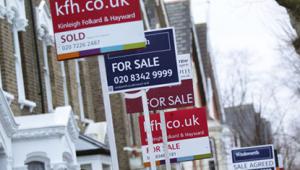The commission’s report, Raising the capital, was published today after a nine-month long inquiry. Chaired by Tony Travers of the London School of Economics, other commissioners included former Labour local government minister Nick Raynsford and CIPFA chief executive Steve Freer.
It concluded that funding models for basic infrastructure requirements in London, such as housing and transport, were inadequate and would not keep pace with the population growth expected in the capital.
The commission noted that just 7% of the taxes paid by Londoners were currently redistributed directly by locally elected bodies. Almost three-quarters of London’s funding (74%) comes from centralised government grants, compared with just 25% in Berlin and 13% in Paris.
Devolution of a suite of property taxes to the city government would help to redress this balance, the commission said. This would allow the London mayor and councils to develop a long-term infrastructure investment plan and make them more accountable to residents and businesses.
Five property taxes should be devolved, the commission recommended – council tax, business rates, stamp duty land tax, the new annual tax on enveloped dwellings and capital gains property development tax. London government should be given authority over the revaluation, banding and discounts for these taxes. Regular revaluations should be carried out, although London government would have discretion over the timing of such exercises.
London should also be able to levy its own smaller taxes, such as tourism and environmental taxes, similar to the powers now being introduced in Scotland.
Borrowing limits should be removed although London bodies should continue to operate within the Prudential Code, the commission said. The mayor and London councils should also have discretion over local Tax Increment Financing projects – where councils can invest in infrastructure on the basis of a resulting future increase in business rates.
Travers said that, with both Scotland and Wales moving towards greater fiscal autonomy, London should be treated similarly.
‘Indeed, other cities in England could follow London down the route to greater financial accountability and self-determination,’ he said.
‘England is far too centralised and the London Finance Commission’s pragmatic proposals would be a first step towards a more sensitive and popular democracy.’
The commission’s recommendations received the full backing of London Mayor Boris Johnson and London Councils chair Jules Pipe. Johnson said: ‘[The report] recognises the acute need for London to be able to better plan and finance the infrastructure needed to prosper and maintain a great quality of life, in the face of a decade of expansion.
‘The current system is simply not fit for purpose and is out of step with the funding settlements enjoyed by cities of comparable size and stature.’
Pipe added that the commission’s proposals offered ‘new hope’. He said: ‘They would give boroughs and the mayor of London the power to support London’s economy to create sustained economic growth and jobs, and we would be accountable to Londoners for delivering that.’
Johnson said he would now be lobbying Whitehall to implement the commission’s recommendations. Travers also revealed that he would meet with the main party leaders to embed the ideas with them.
CIPFA gave the report an enthusiastic welcome, saying it could be a landmark in the development of London’s governance.
‘There is a real coherence about its recommendations which aim to build on the localist policies of the coalition government,’ said chief executive Steve Freer, himself one of the commissioners.
‘Hopefully we will see strong, cross-party support for their adoption and early implementation.’
He added that the central proposals could be replicated in other cities. ‘The idea of city local government having full responsibility for a segment of the national tax base, property, has particular attractions. Over time it will enable careful calibration of different taxes to incentivise efficient use of property.’
But the CBI’s London director, Sara Parker, said business was not in favour of local rate setting, which could create uncertainty.
‘It’s imperative that any change doesn’t lead to distortions in the tax system or additional administrative costs,’ she added.
Local government minister Brandon Lewis said the report would be considered carefully, but added that there were no immediate plans to devolve additional powers to London.
He said: ‘The mayor has considerable financial power already. The Localism Act passed responsibility for housing, economic development and the Olympic legacy to London, in addition to transport, planning and the police already controlled by the mayor. A £3bn funding deal accompanied these new powers up to 2014/15. As a consequence, London is now largely independent of national government in many areas.
‘Since April, London also keeps a significant local share of its business rates, which the Greater London Authority and London's boroughs split. This replaces a series of fixed grants they both previously received.’
Read Tony Travers' blog on the conclusions of the London Finance Commission




















